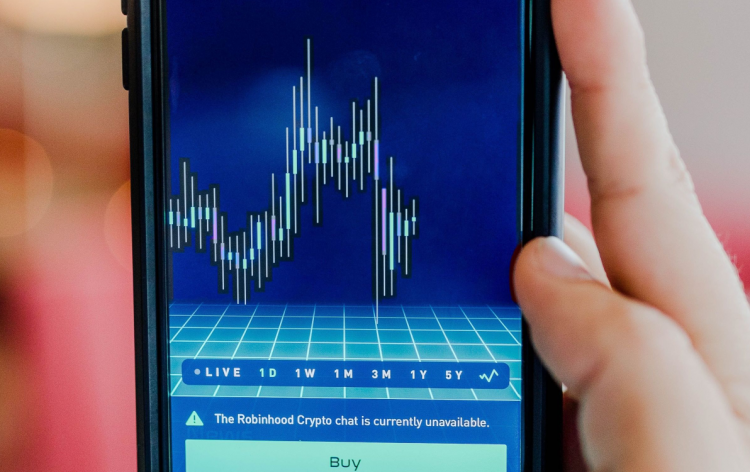How Fintech is Disrupting the Forex Market: A Deep Dive Analysis

Fintech has played a crucial role in revolutionizing the forex market, transforming the way traders access, analyze, and invest in currencies. By leveraging cutting-edge technologies such as AI, machine learning, blockchain, and mobile apps, fintech companies have brought new levels of convenience, efficiency, and transparency to forex trading.
One of the key advantages of fintech in the forex market is that it has made trading more accessible to a wider range of investors, breaking down traditional barriers to entry such as high costs and complex technical skills. Additionally, fintech has enabled traders to access real-time data, analytics, and insights, empowering them to make more informed decisions and execute trades with greater speed and accuracy.
Overall, fintech has transformed the forex market into a more dynamic, diverse, and user-friendly space, opening up new opportunities for traders to profit from currency fluctuations and participate in global financial markets. So yes, fintech revolutionized FX but is this impact completely positive? We will try to give the answer to this question down below.
Changes that Fintech Caused in FX
Fintech has caused significant changes in the forex industry, transforming the way that traders access, analyze, and invest in currencies. Before the advent of fintech, the forex market was largely dominated by traditional financial institutions such as banks, hedge funds, and large-scale trading firms. These players relied on manual trading techniques, cumbersome back-end systems, and limited access to real-time data and analytics.
However, with the rise of fintech, the forex industry has undergone a major transformation, bringing new levels of convenience, efficiency, and transparency to trading. One of the most significant changes that fintech has brought to the forex market is the democratization of access. By leveraging mobile apps, online platforms, and low-cost trading options, fintech has made forex trading more accessible to individual traders, breaking down traditional barriers to entry such as high costs and complex technical skills.
In addition to democratizing access, fintech has also brought new levels of convenience and efficiency to the forex industry. For example, mobile trading apps have made it possible for traders to execute trades on the go, while real-time data and analytics have enabled them to make more informed investment decisions. Fintech has also enabled automated trading, which uses algorithms and machine learning to execute trades based on pre-defined rules, allowing traders to make faster and more accurate decisions.
Another significant change that fintech has brought to the forex industry is increased transparency. In the past, forex trading was often criticized for being opaque and lacking in accountability. However, with the advent of blockchain technology, fintech has made it possible to create transparent, decentralized systems that enable traders to track transactions and verify the authenticity of trades.
Overall, fintech has caused significant changes in the forex industry, transforming it from a closed, exclusive market dominated by institutional players to a more open, accessible, and user-friendly space. By leveraging cutting-edge technologies, fintech has brought new levels of convenience, efficiency, and transparency to forex trading, making it possible for individual investors to participate in global financial markets and profit from currency fluctuations.
Is Fintech Disrupting FX?
Fintech is revolutionizing the forex industry by leveraging new technologies to provide traders with faster, more accurate, and cost-effective trading solutions. The traditional forex market, which was previously controlled by banks and large financial institutions, is being disrupted by fintech firms offering innovative platforms, such as mobile trading apps and social trading platforms.
However, there are also some negative changes caused by the fintech disruption in the forex industry. One of the main concerns is the lack of regulation in the sector, which has resulted in some unscrupulous operators taking advantage of unsuspecting traders. Additionally, the increasing use of automated trading strategies has led to concerns about market manipulation and the impact on market liquidity.
To address these issues, industry regulators are working to establish guidelines and standards for fintech firms operating in the forex market. This includes setting up licensing requirements, ensuring transparency and accountability, and promoting best practices for risk management.
The latest trends in the forex industry include the use of blockchain technology to improve the transparency and security of transactions. This enables traders to conduct transactions directly, without the need for intermediaries, resulting in lower transaction fees and faster settlement times. Additionally, mobile trading apps are becoming increasingly popular, as traders can access real-time market data and execute trades from their mobile devices.
Other technologies being used in the forex industry include cloud computing, big data analytics, and machine learning. These technologies enable fintech firms to analyze vast amounts of market data and develop more accurate trading algorithms. Social trading platforms, which allow traders to share their trading strategies and follow other successful traders, are also gaining in popularity.
In conclusion, fintech is disrupting the forex industry by providing traders with faster, more efficient, and cost-effective trading solutions. While there are some negative aspects to this disruption, such as the lack of regulation and concerns about market manipulation, industry regulators are working to address these issues. The latest trends in the forex industry include the use of blockchain technology, mobile trading apps, and social trading platforms.


























Comments (0 comment(s))